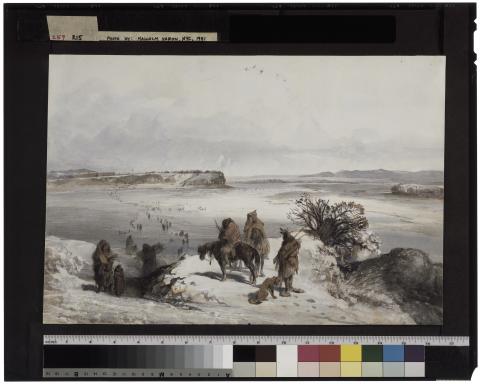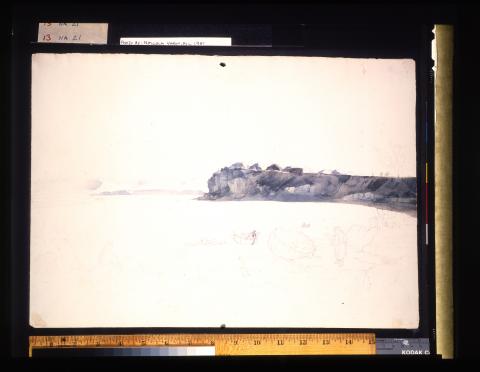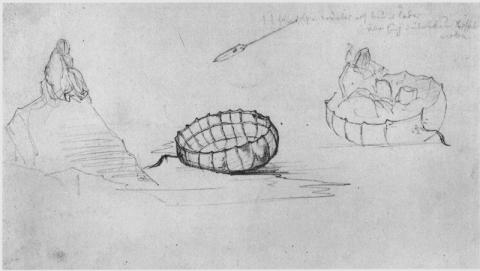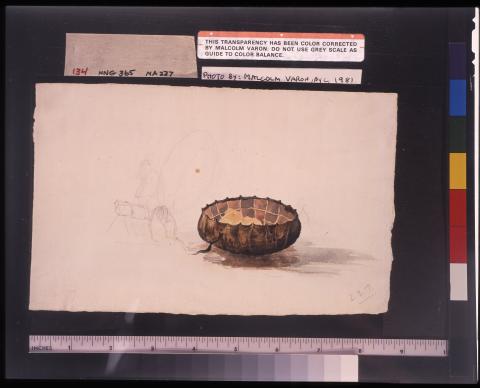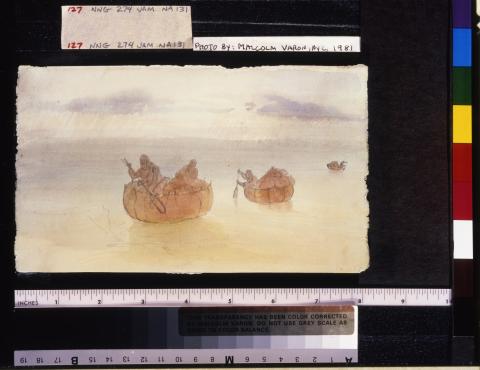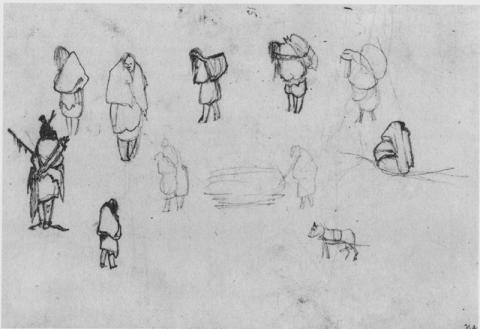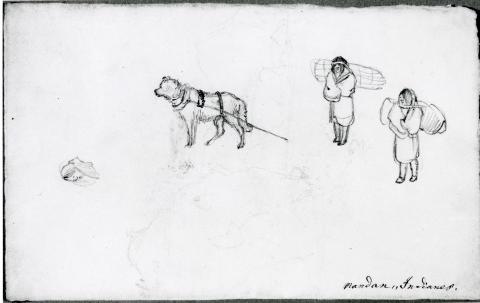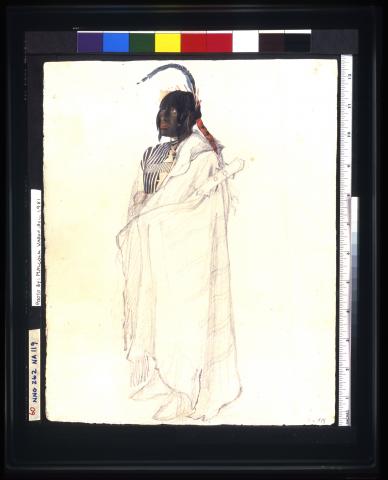February 9, 1834
9 February: (Sunday). In the morning, very beautiful and friendly, no frost. A little ice [formed] on the small puddles during the night. At seven thirty, 39°F [3.9°C]. Wind southwest. The sun soon shown very warmly. It was thawing on the surface everywhere, and water was running in the creeks and ravines. Durand and Síh-Chidä came into the fort. Dreidoppel went to the hills to look for rabbits.
Many women carried loads, especially wood, from the lower forest village to Mih-Tutta-Hangkusch. They had to cross a recently formed channel on the ice [near] the fort. It was covered with thin ice, [which] they broke with poles and [then] waded through. Some brought a [bullboat] and pushed the wood across in the boat. It is noteworthy to see how they put these heavy loads on their backs. The wood lies on the ground, tied together. The woman lays down with her back on [top of] it, and another person lifts the wood up with her until she can lean forward and stand up [under the weight]. The frozen river was covered with individual women carrying [loads] to the village. The Indians wanted to move back, because they were too scattered in the proximity of their enemies.
The deaf-mute with the blackened face, Máhchsi-Níhka (Young War Eagle), was drawn full-figure. On his head he wore the tail feather of a cock, [his] face [was] black, [and] in his hair [were] nine wooden pegs representing wounds received or shots into his clothing. With his two deaf-mute siblings, he belongs to a prosperous family; his brother is a berdache and works a lot, because he is a strong man. I met Dreidoppel on the prairie about noon; he had not seen anything. We looked for the lost mousetrap, but there was still too much snow at that part of the creek. At twelve twelve thirty (noon), 47°F [8.3°C]. Wind almost east southeast. It turned in the afternoon and blew raw out of the west. In the afternoon, a thin rain. The wind turned north, [and then] at four o’clock, northwest. Charbonneau returned from Ruhptare, where all the inhabitants have already [returned] from their forest [village] because they were afraid of early ice drift and high water. The Hidatsas are supposed to arrive ? [and] dance the Scalp Dance tomorrow at Fort Clark. In Mih-Tutta-Hangkusch, too, perhaps twenty families moved in today. The Hidatsas [Page 3:147] sent out people to spot the buffalo herds. They all want to go hunting again. Evening dark, calm; light rain stopped at nine o’ clock [but] soon started again, and as the wind turned to the north, it changed to snow, so that on
